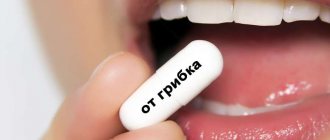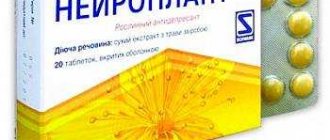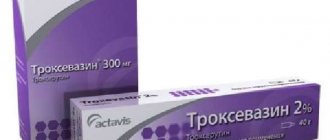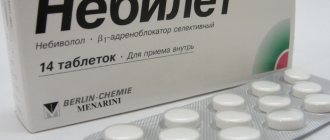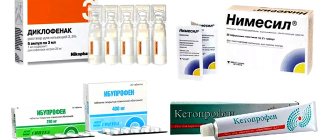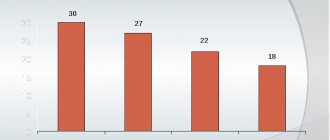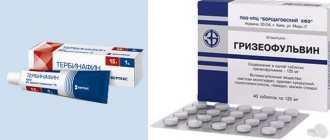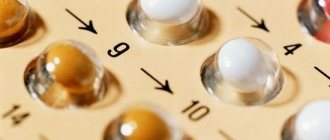High blood pressure worries many people; fortunately, there are a large number of special medications for it that help stabilize a person’s condition. The range of such medications is quite wide, but choosing the right remedy can only be done with the help of a specialist. Often, attending physicians offer the patient an alternative of two or three options. To make it easier for you to choose the right medicine, we decided to rank the best pills for high blood pressure. However, before moving on to a direct analysis of the characteristics of each remedy, let's look at the principles on which such a medicine should be purchased.
What is hypertension
In medicine, there are the concepts of “arterial hypertension”, “hypertension”, “secondary hypertension” - they are not synonymous. The first term is used to refer to high blood pressure (BP). The second characterizes the pathology of the cardiovascular system. It manifests itself in a persistent and prolonged increase in pressure caused by changes in the tone of the arterial walls or disturbances in the functioning of the heart. Secondary hypertension is associated with damage to other internal organs (kidneys, endocrine system).
An increase in blood pressure in hypertension is associated with serious functional disorders:
- the lumen of small blood vessels decreases;
- blood flow slows down;
- blood becomes more viscous;
- the load on the heart increases;
- peripheral blood vessels increase resistance;
- the synthesis of neurohormones that regulate the maintenance of homeostasis is disrupted;
- the body retains a large amount of water and sodium ions;
- the volume of blood circulating in the bloodstream increases;
- the level of metabolism in tissues decreases.
Hypertension is diagnosed when blood pressure levels are above 140/90, and there are three degrees of development of the disease. This depends on the presence of aggravating factors and the severity of damage to target organs: heart, blood vessels, brain, kidneys, eyes. Symptoms of hypertension are:
- nausea;
- dyspnea;
- noise in ears;
- tachycardia;
- increased sweating;
- facial redness;
- chills;
- anxiety;
- headache throbbing;
- dizziness;
- “flies” before the eyes;
- swelling of the face in the morning;
- numbness of hands.
With a severe progressive course of the disease, complications arise. These include:
- angina pectoris;
- myocardial infarction;
- stroke;
- cardiac asthma;
- left ventricular hypertrophy;
- pulmonary edema;
- uremia (intoxication with protein metabolites due to impaired renal function);
- aortic dissection;
- retinal detachment.
Vasodilatator "Losartan"
Sometimes it is difficult to choose the best blood pressure medication for a particular patient. If the problem is caused by pathological narrowing of blood vessels, then a specialist may recommend the drug Losartan. It has been proven that the active substance can quickly block the activity of the vasoconstrictor enzyme in the bloodstream. Patients notice the effectiveness of the prescribed treatment after the first use of the medication.
After consuming the tablet, the maximum concentration of the active substance is recorded within six hours. The drug affects the body for about a day. Doctors note that with the help of this medication, you can quickly normalize the condition and achieve a lasting improvement in the patient’s well-being after 2-3 weeks of regular use of the tablets. The drug can also be used to treat patients with a history of diabetes mellitus of any type.
Losartan has many good reviews. It is convenient to use and is well tolerated. Drugs that are good at lowering blood pressure often cause negative consequences. If this medicine is prescribed, then only a feeling of nasal congestion, headache and dry mouth are possible. Sometimes arrhythmia is recorded.
Medicines to lower blood pressure
The risks associated with hypertension should not be underestimated. It is important not to miss the moment when you can effectively lower blood pressure at home using pharmacological agents. When to start drug therapy:
- persistent increase in blood pressure from 160/90;
- for diabetes mellitus, renal, heart failure - at 130/85.
Considering that hypertensive patients have to take pharmaceuticals constantly, it is important to choose medications for high blood pressure without side effects or with minimal side effects. In rare cases, treatment is prescribed with one medication, which lasts 12 hours and is taken once a day. The effectiveness of monotherapy is no more than 50%. It's connected with:
- incorrect choice of drug and its dosage;
- body resistance to the active substance;
- impossibility of replacing medication.
Combination therapy using 2-3 active substances from different groups is more effective. It is possible to influence all functional disorders that cause increased blood pressure, reduce the dosage of medications, enhance the therapeutic effect, and limit side effects due to their mutual leveling. You should take medications regularly, regardless of your blood pressure. Some active ingredients accumulate in the body and act for a long time. Others are addictive; such medications need to be changed periodically as prescribed by a doctor.
Long acting tablets
Drugs characterized by a cumulative effect constitute a specific pharmacological group and are used for a long course of therapy.
The active effect of drugs of this type begins over a certain period of time, during which the drug accumulates in the body.
The following drugs have a weak antihypertensive effect:
- Veroshpiron. Refers to a type of mild diuretics. Does not remove potassium from the body, gradually reducing blood pressure.
- Nimodipine. Inhibits the production of calcium, dilates blood vessels, primarily related to the brain.
- Felodipine. Gradually blocks calcium channels, resulting in vasodilation.
- Lercanidipine. Another calcium blocker, but it does not have a negative effect on the kidneys. Used in the treatment of hypertension due to renal failure.
It makes no sense to use these medications to quickly lower blood pressure, since they all have a prolonged effect.
Main groups of drugs for hypertension
Only the attending physician can select and prescribe medications for hypertension without side effects, based on the patient’s condition and his individual characteristics. The reaction to the active ingredients of any drug is individual. The drugs differ in pharmacodynamics, have special instructions for use, and contraindications. Problems of high blood pressure can be solved by:
| Pharmacological group | Mechanism of action | Drug names |
| Beta blockers | The heart rate decreases, the walls of blood vessels relax, and the incoming blood volume decreases. Prescribed in the presence of tachycardia, ischemia, arrhythmia. They have side effects such as urticaria, shortness of breath, weight gain, vomiting, dry mouth, and loss of consciousness. Do not take if you have heart pain | Metoprolol Nebivolol Anaprilin Carvedilol Coronal Bisoprolol Atenolol Betaxolol |
| Alpha blockers | They relieve spasms, relax the longitudinal muscles of blood vessels, due to which they expand. Taken for severe illness. They are included in complex therapy together with diuretics and beta blockers. Are addictive and have side effects | Hydralazine Minoxidil |
| Calcium antagonists (calcium channel blockers) | They quickly dilate blood vessels by blocking the process of calcium entering their cells. Used for concomitant kidney pathologies, arrhythmias, and diabetes. Prescribed to elderly people. The medications do not cause lethargy, drowsiness, and increase endurance. Modern drugs have a prolonged effect | Nifedipine Verapamil Amlodipine Diltiazem Isoptin Lacidipine Nimodipine Felodipine Cordaflex |
| Angiotensin 2 antagonists (sartans) | They act gradually. The therapeutic effect lasts up to 48 hours. They block angiotensin 2 receptors (the substance causes vasospasm). Stable results are achieved after several weeks. They are not addictive, have no side effects or their manifestations are minimal. Reduce the risk of stroke, heart attack, kidney failure | Losartan Valsartan Candesartan Lozap Eprosartan |
| Diuretics (diuretics) | They help remove excess water and salt from the body and relieve swelling. As a result, blood volume decreases and the load on the heart decreases. | Furosemide Diuver Hypotheazid Hydrochlorothiazide Indapamide Veroshpiron |
| ACE inhibitors (angiotensin-converting enzyme) | They dilate blood vessels, protect the kidneys, and reduce the risks of diabetes, stroke, and heart attack. Prescribed for heart failure, ischemia, diabetes. The duration of action is short, with minimal side effects. Among them are Quincke's edema, bronchospasm, blurred vision, problems with stool | Enalapril (maleate) Renipril Berlipril Captopril Lisinopril Lisinoton Ramipril Monopril Diroton |
| Centrally acting antihypertensives | Rarely used. Cause side effects and addiction. They are used during a hypertensive crisis to quickly alleviate the patient’s condition. Pressure decreases within 20-40 minutes | Clonidine Physiotens Moxonidine Moxonitex |
Why does blood pressure increase?
Before you lower your blood pressure, you need to figure out what caused it to rise. If cases of hypertension occur more than 2 times a month, then this is a reason to consult a doctor for help. To create an effective course of treatment and a suitable medication, it is necessary to determine which factor causes hypertension. Doctors identify the following main reasons that can become a trigger for high blood pressure:
- passive lifestyle;
- smoking;
- prolonged stress;
- alcohol abuse;
- diseases of the endocrine system;
- eating large quantities of highly salty foods;
- excess adipose tissue, including visceral fat.
In some cases, it is not necessary to take medications to normalize blood pressure. In many cases, a salt-free diet, optimal physical exercise, and emotional rest help, which is also a non-drug treatment method. The first step for a successful recovery should be an examination: checking the endocrine system, ECG, etc.
In difficult cases, a person experiences hypertensive crises, in which there is a sudden increase in blood pressure immediately to high values, renal failure appears, a stroke and intracerebral hemorrhage are possible. The patient should regularly check their blood pressure and take antihypertensive medications. People suffering from hypertension complain of:
- headaches (in the back of the head);
- dizziness;
- fatigue;
- poor sleep;
- frequent heart pain;
- cases of hemoptysis;
- that the limbs may swell;
- visual impairment.
Blood pressure pills without side effects
Losartan has a powerful antihypertensive effect. Belongs to the group of sartans. These are the most effective and promising drugs for hypertension without side effects. The pharmacological action of Losartan is aimed at suppressing the action of angiotensin 2 (the substance has a strong vasoconstrictor effect). Peculiarities:
- Blood pressure decreases after the first dose.
- Take the tablet once a day, the dosage is gradually increased from 50 mg to 100 mg.
- After 3-6 weeks, stable pressure stabilization is achieved.
- In 1% of cases, side effects occur (migraine, anemia and others).
Lisinopril belongs to the group of ACE inhibitors. The effect occurs 1 hour after administration, reaches its maximum after 6 hours and lasts for a day. Dosage – from 5 to 40 mg. The tablet is taken 1 time in the morning. The drug has a cumulative effect. Stably maintains normal blood pressure. Suitable for people with heart failure who have had a heart attack. Improves myocardial resistance to stress. Rarely occur:
- dizziness;
- sweating;
- dry cough.
Sartans (angiotensin II receptor blockers)
Modern medications for high blood pressure, which made their presence known on the pharmaceutical market in the early nineties. They are distinguished by effective reduction of pressure for the whole day (maximum - for 48 hours), they act gently, dry cough appears in very rare cases, there is no withdrawal syndrome. They relieve spasm of the walls of blood vessels, due to which they can be used for renal hypertension.
List of common sartans:
- Losartan is considered the best original sartan available in the Russian Federation. The main active ingredient of such drugs as: Losartan, Lorista, Losarel, Lozap, Bloktran, Vasotens, Kozar, Presartan, Teva;
- Valsartan - available in the medications Valsacor, Valz, Diovan;
- Eprosartan - Teveten;
- Candesartan – Atacand;
- Telmisartan - Twinsta and Mikardis.
LosartanLosartan is the leading original sartan in Russia. Contraindications: dihydration, childhood, pregnancy, lactation, hyperkalemia. Application: 50 mg once a day, it is possible to increase the dosage to 100 mg. Side effects: insomnia, headache, dizziness, migraine, ringing in the ears, memory disorders, loss of consciousness, changes in vision, cough, stuffiness and nosebleeds, bronchitis, chest pain, back pain, arthritis, arrhythmias, palpitations, anemia , decreased libido, dry skin, hair loss, increased sweating, Quincke's edema, fever, gout, etc. |
Modern drugs without side effects
The group of ACE inhibitors and calcium channel blockers includes the latest generation of blood pressure medications. They provide maximum therapeutic effectiveness with a minimum of side effects. Monopril is an ACE inhibitor. The drug simultaneously reduces systolic and diastolic blood pressure by dilating blood vessels, restores their elasticity, and promotes normal heart function. Reception:
- The minimum dose is 2.5-5 mg, the maximum is 10 mg.
- Take the medicine once in the morning.
- The dose is adjusted taking into account age and the presence of heart disease.
Felodipine is a calcium antagonist. 5 mg is the standard daily dosage, taken once in the morning, regardless of meals. You can take the medicine with any liquid except grapefruit juice. For elderly patients, the dose is reduced to 2.5 mg. In the presence of angina pectoris, pathologies of the left ventricle, kidneys, the concentration of the active substance is selected individually. Duration of treatment – 2 weeks. At the initial stages of taking the drug, it is important to monitor blood pressure and pulse in order to adjust the dosage if necessary.
Angiotensin-converting enzyme inhibitors
They act on the enzyme responsible for converting the vasoconstrictor hormone angiotensin into renin. As a result, there is a decrease in blood flow through the heart, restoration of the myocardium in the presence of hypertrophy, and prevention of its thickening.
ACE inhibitors with a sulfhydryl group
This category includes substances such as:
- Captopril (drugs Capoten, Epsitron, Captopril, Alkadil);
- Benazepril (Potensin drug);
- Zofenopril (Zocardis).
Captopril is one of the best means of combating hypertensive crises, but due to its strong effect, it is better not to take it for elderly people with vascular atherosclerosis.
Contraindications: history of angioedema during therapy with ACE inhibitors, pregnancy, lactation, children under 18 years of age, after kidney transplantation, obstruction of blood outflow from the left ventricle, with caution in diabetes mellitus, cerebral ischemia, coronary artery disease, old age, severe autoimmune diseases.
ACE inhibitors with a carboxyl group
This group of ACE inhibitors includes:
- Enalapril – represented by the drugs Enalapril, Enap, Enam, Edith, Berlipril, Renipril, Renitek;
- Lisinopril – Lisinopril, Lisinoton, Diroton. The drug of choice if the patient has type 2 diabetes mellitus and metabolic syndrome.
- Perindopril - Prestarium, Perineva. In addition to the fight against hypertension, it has proven itself in the prevention of stroke, as well as as a medicine for hypertensive patients with chronic heart failure;
- Spirapril - Quadropril;
- Ramipril - Hortil, Tritace, Amprilan;
- Trandolapril – Grater Retard;
- Cilazopril;
- Quinopril.
Practice shows that in addition to the main effect, enalapril can literally prolong the patient’s life. Among the side effects, the most unpleasant is a dry cough.
At the same time, Enalapril from the manufacturer Nizhpharm (crushed chalk) does not have a single proven case of a patient receiving benefit from its use. This once again shows that original drugs are much preferable than their cheap analogues.
Contraindications: pregnancy, lactation, hypersensitivity, with caution - diabetes mellitus, liver, kidney failure, old age, children under 18 years of age, coronary artery disease, severe autoimmune diseases, after kidney transplantation, etc.
Application: initial dose 5 mg. 1 r/day; if there is no effect, after 2 weeks the dose is increased to 10 mg. For moderate hypertension, the daily dose is 10 mg, the maximum daily dose is 40 mg.
Side effects: decreased blood pressure, angina pectoris, arrhythmias, pulmonary embolism, headache, dizziness, depression, nervousness, fatigue, tinnitus, impaired vision and hearing, vestibular system, decreased appetite, dyspepsia, pancreatitis, jaundice, dry cough, shortness of breath, pharyngitis, bronchospasm, Quincke's edema, urticaria, photosensitization, stomatitis, arthritis, arthralgia, renal dysfunction, hair loss, decreased libido.
PerindoprilPerineva 250-360 rubles, Prestarium 450-650 rubles. Indicated for the prevention of recurrent stroke, with chronic heart failure, with stable coronary artery disease, with arterial hypertension | LisinoprilDiroton 160-230-370 RUR, Lisinopril 20-70-170 RUR, Lisinoton 160-220 rub. It is the drug of choice in elderly patients with metabolic syndrome and type 2 diabetes. | With phosphinyl groupFosinopril (Monopril 350 RUR, Fosicard 120-200 RUR) Fosinopril is the drug of choice for renal failure and severe renal diseases, since renal pathology does not require dose adjustment of the drug. |
With phosphinyl group
These ACE inhibitors are found in the drugs Fosinopril, Fosicard.
Necessary for the treatment of hypertension in renal failure.
Fast acting
Effective fast-acting medications for hypertension include Captopril, Furosemide, Anaprilin, Enalapril, Adelfan, Dihydralazine, Reserpine. If your blood pressure is high, you can put a Captopril tablet under your tongue. This medicine belongs to the class of ACE inhibitors. Improvement occurs within 10-30 minutes. The drug does not last long. To stabilize the condition, take Captopril up to 3 times a day. Side effects appear while the drug is in effect, so after taking the medicine, you need to lie down.
Furosemide is a fast-acting diuretic. The pharmaceutical product causes relaxation of smooth muscles, strong diuresis, and a decrease in circulating blood volume. After taking 20-40 mg of medication, copious urination begins within 1 hour and within 3-6 hours. Due to the removal of excess fluid, blood pressure decreases. The main contraindications are hypersensitivity to the active substance of the drug, allergies and pathologies of the urinary system (88% of the drug is excreted by the kidneys).
Is it possible to use an analogue?
Among the disadvantages of Losartan, its relatively high cost is often mentioned. Therefore, patients are interested in possible budget analogues. The following medications may be noted:
- "Xartan";
- "Lozap";
- "Vasotens";
- "Renicard."
Of course, these drugs have a lower cost. However, as medical practice shows, the original is more effective if high blood pressure is complicated by the presence of other diseases. In addition, side effects can also be avoided if you use the product recommended by your doctor.
Injections for hypertension
In emergency situations, when blood pressure exceeds acceptable standards (about 200/100) and the situation threatens the patient’s life, drugs are administered by injection. They use triad, Dibazol, Clonidine, magnesia. Troychatka (Papaverine, Diphenhydramine, Analgin) - a universal injection. Papaverine quickly relaxes the walls of the arteries and relieves pain, analgin acts as an anesthetic, diphenhydramine has a sedative effect and normalizes heart rhythm. The purpose of using injections is to quickly relieve an attack.
Severe spasm of the arteries during hypertension is reduced with the help of injections of Papaverine and Dibazol. The injection is administered slowly, while the condition is monitored. Intramuscular injection of these drugs can prevent further development of hypertension. For high blood pressure with severe pain in the temples, Analgin is added to Papaverine and Dibazol. Injections with Dibazol are contraindicated:
- diabetics;
- hypotensive patients;
- patients with kidney pathologies;
- with convulsions;
- with gastrointestinal bleeding.
Diuretic "Veroshpiron"
When considering which drugs are better for lowering blood pressure, it should be noted that diuretics promote active loss of potassium. "Veroshpiron" is classified as a diuretic, which is designed to maintain a sufficient amount of this element in the body. In this case, the medicine is often not used as a primary drug and is part of a combination treatment for high blood pressure.
The best blood pressure medications should have positive reviews, indicating the absence of side effects. In this case, as practice shows, no unpleasant moments are observed during treatment, but only if you follow all the doctor’s recommendations regarding dosage, method of administration and regimen of use.
It must be remembered that the medication is not intended for continuous use. If you neglect this rule, the following symptoms are possible:
- hormonal imbalances;
- blood pressure is too low.
Doctors note a good effect from the use of Veroshpiron and a rapid decrease in blood pressure to normal values.
Medicines for the elderly
Hypertension is a common disease among elderly patients. Due to the presence of many concomitant diseases and pathological conditions, the doctor selects blood pressure medications with the least side effects. The first place in this series is occupied by diuretics. Hypothiazide inhibits the reabsorption of sodium and chlorine in the renal tubules. The effect occurs 2 hours after taking the medicine and lasts 6 hours. The drug relieves swelling of the lower extremities and reduces the load on the heart.
The second choice is calcium channel blockers. They are indicated for atherosclerosis, diabetes mellitus and excess body weight. Nifedipine relieves spasm of arterial walls, reduces peripheral vascular resistance, and increases coronary blood flow. The effect occurs within 20 minutes and lasts 4-6 hours. Contraindications are associated with pathological changes in the heart and blood vessels. The third place among drugs for hypertension without side effects is occupied by sartans and lisinopril. Lastly, combination drugs (Prestance, Tarka) are prescribed.
Safe pills for older patients
With age, blood pressure levels increase, the functioning of the heart and blood vessels worsens, and blood vessels lose elasticity. Hypertension often accompanies people in old age.
Doctors select medications for hypertension for elderly patients without adverse reactions. Medicines belonging to the following pharmacological groups are considered effective in old age:
- Diuretics: remove excess fluid from the body, relieve tissue swelling, gently lowering blood pressure. In old age, doctors recommend taking Hypothiazide tablets. This is an inexpensive medicine for early stage hypertension. In case of prolonged, complicated hypertension, it is ineffective. Another effective, safe medicine for older patients is Indapamide. Indapamide tablets are often prescribed to women during menopause.
- Calcium antagonists are prescribed with caution in the elderly. Among the calcium channel blockers for the elderly, Nifedipine is distinguished.
- Combination drugs. have a pronounced hypotensive effect. The doctor prescribes medications only after a comprehensive examination, taking into account all the risks.
In case of sudden pressure surges, you must immediately call an ambulance. Before doctors arrive, first aid should be provided to the patient:
- unfasten a tight collar or remove clothing that interferes with normal breathing;
- give a rescue pill that will lower your readings within minutes of taking it. it could be Nifedipine or Captopril;
- if a decrease in pressure is accompanied by severe pain in the heart, it is necessary to give the patient a Nitroglycerin tablet. The tablet must not be swallowed or dissolved. It is placed under the tongue until completely absorbed. If the pain does not go away within 10 minutes, you can give another tablet. In total, it is permissible to take 3 tablets within a short period of time.
- the patient needs to be reassured, since stress, anxiety, worry and nervousness increase blood pressure, it is better to lay him horizontally, with his legs slightly raised;
- It is necessary to open the windows in the room where the patient is located to ensure a flow of fresh air.
Doctors recommend that elderly patients take new generation medications. They are safe, cause minimal side effects and have few contraindications. The decision to prescribe any medication is made only by the attending physician. Self-medication for hypertension is excluded.
Strong tablets
The effectiveness of therapy with tablets that contain fixed combinations of active ingredients from different groups is the highest. Hypertension of grades 2 and 3, high risk of complications of the cardiovascular system - indications for prescribing combination medications. A lasting therapeutic effect can be achieved with a one-time dose of the pharmaceutical drug. The risk of side effects is minimal.
The pharmacological drug Prestance is a combination of an ACE inhibitor (perindopril) and a calcium antagonist (amlodipine). The drug Equator contains amlodipine and lisinopril. Lodoz is a combination of the beta blocker bisoprolol and the diuretic hydrochlorothiazide. 15-20% of cases of hypertension require the use of more than 2 components. Coexforge is a three-component drug: amlodipine, hydrochlorothiazide, valsartan (angiotensin 2 antagonist).
- How to cook horseradish: homemade recipes
- Cheddar cheese - types and price. The birthplace of Cheddar cheese, recipes with photos and what to replace it with
- Why is high hemoglobin dangerous?
"Renipril GT", consisting of two components
The medicine contains two active ingredients. Enalapril maleate and hydrochlorothiazide have an effect on lowering blood pressure. Acting together, the components effectively reduce the readings on the tonometer and at the same time prevent the decrease in potassium ions in the blood.
The active effect of the medicine throughout the day has been proven. The highest concentration of active substances in the blood is reached an hour after administration, and already in the second hour the greatest result from therapy is noted.
The best blood pressure medication should be well tolerated by all hypertensive patients without exception. It has been proven by medical practice that the drug has a good therapeutic effect and does not cause side effects in almost all patients. In addition, as it has been clinically determined, the drug has a beneficial effect on the heart muscle and relieves excess stress from the ventricles of the heart.
However, the newest drug formula may have a concomitant effect on the patient’s body. As reviews show, an allergic reaction may occur to the active substances, or arterial stenosis may occur. But it is worth noting that these manifestations during therapy are very rare and the vast majority of patients respond well to the prescribed medication.
Renipril GT also has analogues. The following drugs perform well and are very popular:
- "Enalapril NL";
- "Co-renitik";
- "Berlpril Plus";
- "Enap-N".
However, it must be remembered that only a specialist should prescribe any remedy or its analogue. Despite the same active ingredient, the drug may differ in the concentration of the active composition and the inclusion of additional substances that can provoke an allergic reaction.
Blood pressure tablets for every day
Enalapril, an ACE inhibitor, has a milder effect than Captopril. This medicine is prescribed for daily use. Correct use of Enalapril increases life expectancy in hypertensive patients. The minimum dose is 5 mg, taken in the morning once a day. Every 2 weeks the dosage is increased. Prescribe with caution to elderly patients, with heart and kidney failure, diabetes mellitus. If side effects occur (dry cough), change the dosage or discontinue the drug.
Bisoprolol and its analogs are beta blockers. It reduces the risk of complications due to high blood pressure. It is prescribed for the treatment of resistant forms of hypertension, angina pectoris, chronic heart failure, and after heart attacks. The drug slows down the production of hormones that constrict blood vessels. Take 5-10 mg of medication once a day in the morning. Bisoprolol can be taken long-term. It should be withdrawn gradually.
Categories of medications for normalizing blood pressure
All medications that can normalize blood pressure and relieve attacks of hypertension can be divided into several categories:
- Beta blockers. Such medications affect the heart rhythm, reducing its frequency. Not every hypertensive patient can use such drugs. This is especially true for those whose normal rhythm does not exceed 60 beats per minute.
- ACE inhibitors. Such medications are indicated for those who have high blood pressure due to excess production of hormones that affect vasoconstriction. Drugs are ways to reduce the production of hormones, the action of which reduces the lumen of the circulatory system.
- Diuretics. These medications directly affect kidney function. People call them diuretics. Some patients report sudden weakness and dizziness after taking one tablet. Such drugs should not be taken in long courses. They are used to relieve swelling. Frequent use of diuretics may cause seizures.
- Calcium antagonists. Such agents have a relaxing effect on the walls of blood vessels, due to which they expand and pressure decreases. Treatment with calcium antagonists may cause dizziness.
Only a complete diagnosis can give an accurate answer as to which drug should be used to reduce blood pressure in each specific case. Self-administration of medications that affect blood pressure is unacceptable.
Cumulative action
Among the large number of pharmaceutical drugs, medications for hypertension without cumulative side effects stand out. These include Metoprolol, Diroton, Losartan, Cordaflex, Propranolol. To normalize blood pressure at home and achieve stable remission, you need to take 1-2 tablets/day. The course of treatment is 3 or more weeks. The medication should not be stopped, even if the tonometer readings are normal.
Diroton (ACE inhibitor) is prescribed as monotherapy for hypertension or in combination with other drugs. Indications include chronic heart failure, acute heart attack, and diabetic nephropathy. The medicine should be taken at the same time, regardless of meals. Doses of 5, 10, 20, 40 mg are selected individually. The most common side effects in 5-6% of cases are dizziness and headache.
Cordaflex (calcium channel blocker) dilates blood vessels. Cardiovascular diseases, hypertension, hypertensive crises - indications for use. Tablets with a dosage of 10 mg are taken 3 times a day before meals, and 20 mg (2 tablets 1-2 times) - regardless of meals. The dose is selected individually, taking into account the patient’s response to the medication and the severity of the disease. If side effects from the digestive, nervous, or circulatory systems occur, the drug is discontinued.
Thiazide diuretics and sulfonamides
Saulretics contain sulfonamides and thiazide diuretics, which together act to improve urination and remove swelling. When the swelling of the vascular wall subsides, the lumen of the vessel increases and blood flow is facilitated, respectively, the pressure decreases.
Thiazides
- Cyclomethiazide;
- Hydrochlorothiazide;
- Hypothiazide.
The mechanism of action is based on blocking the reabsorption of sodium and chlorine, which occurs in the renal tubules. Thus, excess fluid is not retained in the body, and swelling subsides.
When used by people with normal blood pressure, it does not change its indicators.
The first effect occurs an hour and a half after administration, the duration of action is from 6 to 12 hours.
The dosage of the drug for monotherapy is 25-50 mg; for combination therapy, doses range from 12.5-25 mg. Take the drug in the morning.
Contraindications: electrolyte imbalance, pregnancy and lactation, anuria, renal and liver failure, age under 3 years, Addison's disease.
Side effects: nausea, dry mouth and dizziness, cramps and muscle pain, electrolyte imbalance, allergic rashes, anaphylactic shock, photodermatitis, temporary visual disturbances, numbness of the extremities, pulmonary edema, Steven-Johnson syndrome, pneumonitis, hemolytic anemia, disorder potency, arrhythmia, diarrhea, nausea and vomiting, exacerbation of gout and cholecystitis, renal failure, interstitial nephritis.
Sulfonamides
Sulfonamides are well tolerated by patients, prevent cardiovascular complications and reduce the risk of sudden mortality. They are completely eliminated from the body through the liver and kidneys and do not accumulate in organs and tissues.
- Chlorthalidone or Oxodoline;
- Indapamide - prescribed to patients with diabetes mellitus, as it does not change blood sugar levels;
- Chlorthalidone and Atenolol as part of a combination drug.
Drugs in this group are prescribed in severe cases of arterial hypertension, in which other medications have proven to be ineffective. They are used as part of combination therapy, and Chlorthalidone in Russia can only be purchased in the form of a complex with other drugs.
Method of administration and dosage: Indapamide is taken once a day, regardless of meals, a single dosage is 2.5 mg, the duration of action is 24 hours. The effect of using the drug appears after 7 days from the start of use.
Contraindications: pregnancy and lactation, decreased potassium levels in the blood, electrolyte imbalance, lactose intolerance and severe forms of renal and liver failure.
Side effects: from the digestive system, nausea and vomiting, stomach pain and stool disorders may be observed; from the nervous system - insomnia or drowsiness, nervousness, depression. Other possible side effects are allergic rashes, a sharp decrease in blood pressure, rapid heartbeat, dry cough, rhinitis and pharyngitis.
What are the most effective pills for high blood pressure?
Captopril, Enalapril, Bisoprolol, Losartan, Amplodipine, Indapamide - the best blood pressure pills without side effects. Long-term practice of using these pharmaceuticals to treat hypertension has proven their effectiveness and relative safety. The manifestations of adverse reactions in most cases are associated with the individual reaction of the body to the active substances. The use of medications under the supervision of a physician is necessary to adjust the dosage and eliminate side effects.
Amlodipine belongs to the group of calcium antagonists. Improves exercise tolerance for arrhythmias, angina pectoris, atherosclerosis. The combination of Amlodipine with ACE inhibitors gives a lasting therapeutic effect, in this case there is no need to take diuretics. Take the medicine once in the morning, the dosage (5 or 10 mg) depends on tolerance. Side effects are rare. Contraindicated during pregnancy and lactation.
In severe forms of hypertension, complex therapy includes Indapamide. The drug does not affect glucose levels, so it is prescribed for concomitant diabetes. Indapamide reduces the risk of complications on the blood vessels and heart. Take the medicine 1 time, regardless of meals. Medicinal dose – 2.5 mg. The effect lasts throughout the day. The drug is not prescribed to patients with severe hepatic or renal failure. Depression, insomnia, and dizziness may occur.
How to combine several drugs
Since it is possible to minimize side effects from drug therapy using combination treatment, in medical practice it is customary to prescribe several drugs at once for one treatment regimen.
An example of the correct combination is presented in the table:
| Type of drug | Approximate combination of drugs |
| Sartans + diuretics | Hydrochlorothiazide + Valsartan or Losartan |
| Beta blocker + diuretics | Bisoprolol + Hydrochlorothiazide or Atenolol + Chlorthalidone |
| Diuretic + ACE inhibitors | Captopril + Hydrochlorothiazide or Perindopril + Indopamide |
| Calcium blockers + beta blockers | Felodipine with Metoprolol |
| Calcium blockers and inhibitors | Diltiazem with Enalapril |
The presented combination treatment regimens require regular use throughout the life of the hypertensive patient.
How to take it correctly
Hypertension cannot be cured. The entire arsenal of pharmacological agents for lowering blood pressure helps alleviate the symptoms of the pathology. Hypertensive patients take medications all their lives, so you need to take into account some features:
- Pressure surges are observed in patients at different times. Each case requires an individual approach.
- The patient's condition depends on the time of taking the medicine (this was proven by Spanish doctors). Taking at least one drug in the evening (except diuretics) results in lower blood pressure the next day.
- Taking medication in the evening reduces the risk of complications and mortality. Canadian doctors came to this conclusion. They proved that at night hypertensive patients release a hormone that expands the heart and damages its walls. Medicines block the activity of the hormone.
- The patient's chronic diseases are of decisive importance for the timing of medication administration. Renal failure and diabetes are accompanied by an evening increase in blood pressure. The doctor takes this into account when prescribing the dosage regimen.
- Before long-term use, it is necessary to record blood pressure during the day to determine the optimal time.
"Physiotens": a drug with a minimum of harmful effects
The medicine that has maximum effectiveness and minimal harmful effects is Physiotens. If you study the instructions, you will see that the only side effects listed are possible dry mouth and excessive drowsiness. However, from the practice of doctors and reviews of patients, one can notice that such phenomena are very rare. Sometimes patients do not experience any unwanted symptoms at all.
The best blood pressure medication should not affect the respiratory system. “Physiotens” can be used to treat even those patients who suffer from respiratory failure or have a history of asthma. In addition, it has been proven that the use of the product by patients with diabetes mellitus does not in any way affect the course of the disease. The drug only increases sensitivity to insulin administered daily, so its effect alleviates the condition.
How to choose the right one
Experience in the treatment of hypertension has revealed the most effective combinations of drugs from different groups. If there is a high probability of complications and negative consequences, combination therapy of 2 drugs is necessary already in the initial stages of treatment. Combinations have an excellent therapeutic effect:
- ACE inhibitor and diuretic;
- ACE inhibitor and calcium channel blocker;
- angiotensin 2 antagonist and calcium channel blocker (or diuretic).
Contraindications to the use of Indapamide
Even the best blood pressure medication will have a number of contraindications, which are always listed in the annotation and taken into account by the specialist when prescribing. "Indapamite" is also not without this drawback and is prohibited for use by patients with a history of lactose intolerance. However, dosage adjustments may allow these tablets to be taken as needed. But there are also absolute contraindications when the drug is prohibited in any case:
- liver/kidney failure in severe forms;
- hypokalemia;
- allergic reaction to any component of the medicine.
If conditions are identified that prevent the use of Indapamide, the cardiologist may consider its analogues. The most popular are:
- "Acripamide";
- "Arifon retard";
- "Perinid";
- "Indap".
You cannot replace one remedy with another on your own. Even if the composition seems absolutely identical, the drug may have a different therapeutic effect.
Price
The cost of drugs is of decisive importance for patients with hypertension, especially the elderly. You can buy them inexpensively in an online store. Medicines can be ordered from the catalogue. The most expensive are drugs with ready-made and precise combinations of active ingredients:
| Group | Drug name | Price in rubles |
| Beta blockers | Bisoprolol | 150 |
| Alpha blockers | Doxazosin | 100 |
| Calcium antagonists | Felodipin | 95 |
| Nifedipine | 30 | |
| Amplodipine | 40 | |
| Cordaflex | 100 | |
| Angiotensin 2 antagonists | Losartan | 170 |
| Diuretics (diuretics) | Furosemide | 10 |
| Hypothiazide | 100 | |
| Indapamide | 120 | |
| ACE inhibitors | Lisinopril | 20 |
| Monopril | 380 | |
| Captopril | 5 | |
| Enalapril | 40 | |
| Diroton | 45 | |
| Centrally acting antihypertensives | Moxonidine | 120 |
| Combined of 2 components | Prestance | 520 |
| Equator | 500 | |
| Lodoz | 270 | |
| Combined of 3 components | Coexforge | 1000 |
Elderly man at reception
If an elderly person complains of high blood pressure, only a competent doctor can tell you which medications are best for him. It is necessary to use only the most effective, but also safe drugs for treatment. It is known that adaptive forces decrease at a certain age. Therefore, the less the chosen medicine gives complications, the more successfully it will be possible to control the entire therapy process and avoid all kinds of complications.
Experts have tentatively identified a list of medications that are most often prescribed to patients over 60 years of age. These include:
- "Nifedipine". It is classified as a calcium antagonist and helps reduce blood pressure not sharply, but gradually.
- "Hydrochlorothiazide." Refers to diuretics and is prescribed when the patient has obvious fluid retention in the body.
- "Perstance." The drug is combined, which makes it possible to avoid side effects and effectively normalize the patient’s condition. The composition contains amlodipine and perindopril.
However, the main medication for the treatment of arterial hypertension in older patients remains Lisinopril, the properties and features of which have already been discussed above.
For young people
Due to the noticeable rejuvenation of the age range of arterial hypertension, doctors are increasingly faced with the need to select high blood pressure pills for young patients (up to 40 years of age). Antihypertensive drugs have not been developed specifically for this group of patients, so one has to make a choice from those available in the modern pharmacy chain.
For some reason, the opinion has become stronger among young people that antihypertensive drugs have a depressing effect on erectile function, which is why young people avoid taking them in every possible way. This problem gave rise to large-scale studies in groups of young patients, as a result of which the following conclusions were made:
- the leading role in the development of arterial hypertension in young people, as a rule, is played by psycho-emotional (anxiety-depressive) disorders and autonomic disorders;
- an increase in blood pressure in this group of patients usually occurs no more than 2-3 times a week and does not pose a threat of developing cardiovascular complications;
- anxiety states in these patients are often provoked by a type of hypertension such as “white coat hypertension”, which combines all variations of increased blood pressure due to external factors of an emotional nature;
- Antihypertensive therapy without the parallel use of anxiolytic (“anti-anxiety”) drugs in such patients is ineffective, and ongoing states of anxiety provoke progression to full-fledged hypertension.
In this regard, in the treatment of hypertension of anxiety-depressive origin in young people, it is recommended to use drugs with vegetotropic and anxiolytic properties (for example, Tenoten) along with pills for high blood pressure with the least side effects and positive changes in lifestyle.
Calcium channel blockers
BCC is used most often, regardless of the stage of the pathological process. These pharmaceuticals inhibit the movement of Ca+ ions into the body's cells, which is what the therapeutic effect is based on.
Normally, calcium is involved in regulating vascular tone: it penetrates cellular structures, acts on special receptors, giving a signal to the smooth muscle fibers of the arteries to narrow.
This is part of a larger mechanism; in addition to calcium, other electrolytes penetrate through cell membranes: sodium, etc. They also participate in regulation. As soon as there are too many Ca+ ions, the process shifts towards vasoconstriction and spasm.
This is the result of a violation of the normal electrolytic balance in the body, therefore such a deviation does not go away on its own. Outside help is needed. This is where calcium channel blockers come into play.
Today on the pharmaceutical market you can find several groups of drugs of this type.
The most common:
- Verapamil. Synthesized first. Quite an old name: known since the 60s, but this has not made it any less effective. On the other hand, the medication provokes a lot of side effects. And quite often. Not tolerated by all patients. Therefore, it is prescribed somewhat less often than compared with analogues, which will be discussed below.
- Diltiazem. Gold standard in blood pressure therapy. Refers to selective calcium channel blockers. That is, it affects only the vascular walls and smooth muscles.
Thanks to the selective action, it is possible to reduce the risk of side effects. The drug is well tolerated, although you wouldn’t be able to tell by looking at the label.
As a rule, Diltiazem is used in a system with other drugs from other groups. In the early stages of hypertension, you can only get by with blockers.
- Amlodipine. A slow calcium channel blocker. Not selective. Used for persistent forms of arterial hypertension. Causes many side effects. It is much less suitable for the treatment of heart diseases.
- Nifedipine. Belongs to the same subgroup as Amlodipine. In terms of efficiency and other characteristics, it is at approximately the same level.
The main drug in this group is Diltiazem. Verapamil is used less frequently. They are the safest in terms of tolerability.
At the same time, starting from the second stage of hypertension (when the pressure is from 160 to 100 mm Hg and above), monotherapy will be of little use. Systemic treatment (a number of medications) will be required.
For a detailed review of the group of calcium channel blockers, read this article.
conclusions
- There are no medications that do not cause side effects at all.
- When selecting tablets for high blood pressure, you should be guided by the individual characteristics of the body, the severity of hypertension and the nature of concomitant diseases.
- The best drugs, as a rule, are new generation antihypertensive drugs, created taking into account the shortcomings of previous drugs.
- When treating the elderly, one should keep in mind age-related changes in the functionality of most organs and systems of the patient and the number of combined pathologies.
- Young patients with hypertension should pay attention to pills with minimal side effects, to improve their own emotional background and lifestyle in general.


